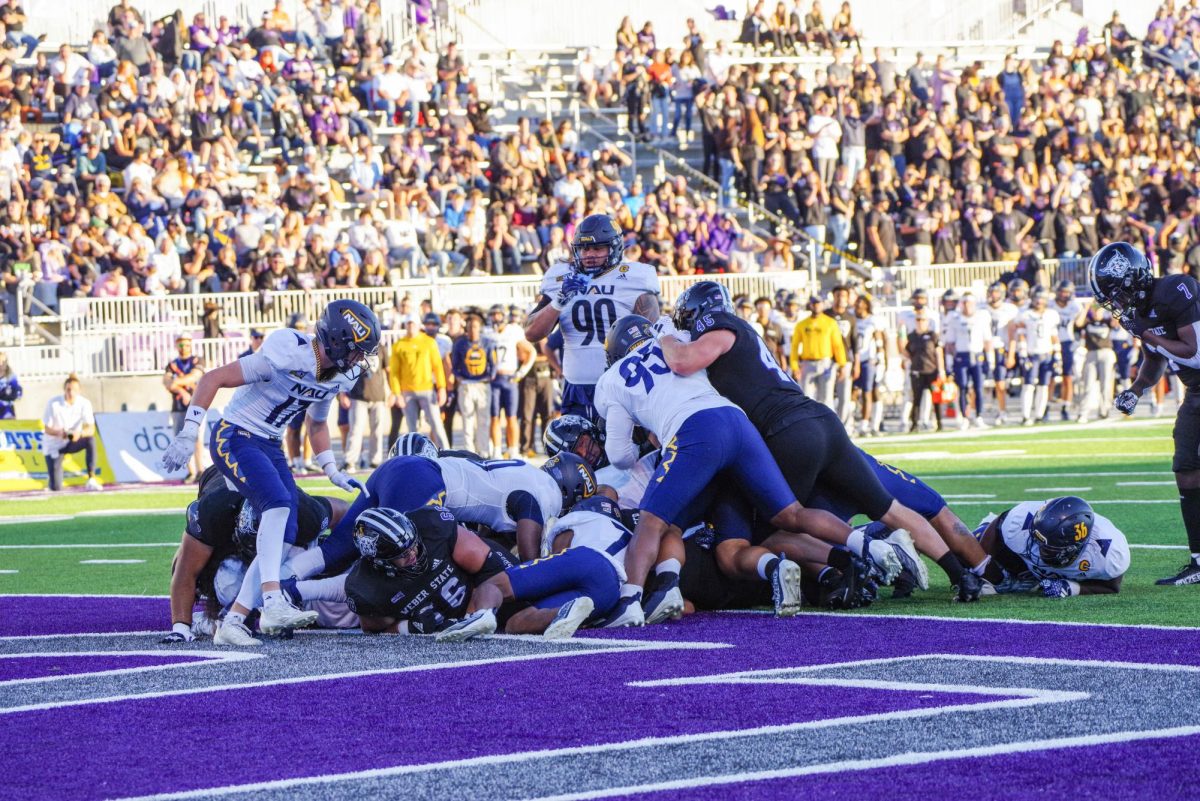- Dennys Chiquillo, a WSU student from El Salvador, graduates next week. He will be returning home for the break, then coming back to WSU for graduate school.
Dennys Chiquillo, along with more than 1,300 other Weber State University students, will be graduating with his bachelor’s degree next week. Like many other international students, he will be returning to his home country after graduation — but, unlike many others, he is only going back for the winter break.
Chiquillo, a business administration major, moved from El Salvador to West Jordan, Utah, four years ago, to live with his uncle and go to school. He intended to transfer to the University of Utah after starting at WSU, but said he couldn’t due to paperwork issues with his visa.
“. . .People said that it (WSU) was far away from West Jordan . . . and I didn’t know what you guys meant by ‘far away,’” Chiquillo said. “I mean, El Salvador is a small country, and when you say ‘far away,’ you’re talking about 20 minutes driving, the most. And then I figured out that it’s an hour driving or three hours in a bus commute.”
Though it wasn’t his original first choice, Chiquillo said he has enjoyed his time as an undergraduate at WSU. He will be returning in January to start on his master’s degree.
“I think that I’m really pleased with what I got (at WSU); I think the program is very solid,” he said.
Chiquillo said there were some obvious difficulties for him in adjusting to the cultural differences between Utah and El Salvador, such as the language barrier. He said that, before coming to Utah, he spoke English “a little bit, yeah, but I mean, it’s different when you go into a culture and speak the language every day. And it’s a little hard when I have to go back and forth between English and Spanish . . . When I come back from Spanish to English, gosh, I just talk horrible.”
WSU being a commuter school with a large nontraditional population, Chiquillo said he also noticed a lack of social activities at times. He said the biggest cultural difference he noticed was that “people here are more direct,” as well as more conscious of time than people in El Salvador seem to be.
“I think also time-consciousness is a big issue for me, that people are very, like, time-efficient, versus in El Salvador — like, for example, over there, if you start a party at 7, then people arrive at 7:30. . . . Overall, there’s a lot of things that overlap between the two cultures, I think, but I think that probably the language — I mean, not English, but just understanding what you guys mean with the words that you guys use.”
Karen Garcia, SEVIS coordinator for International Student Services at WSU, said foreign students tend to experience many cultural shocks upon coming to Utah, and, while some students want to stay at WSU longer come graduation time, others are more excited to get back home. This is often because students from certain countries often do not have the freedom to go back home to visit and then return to WSU, as Chiquillo plans.
“Some of the students are really excited to go back because of the difference in cultures; they’re excited to go home because of the fact that they have been here for four or five years,” Garcia said. “Depending what country they’re from, sometimes they’re allowed to go home back and forth, and some of them are not. So they may have been here for four or five years and never seen their family in all that time.”
Chiquillo said he is most excited to go back to El Salvador to see his family and to enjoy the warmer weather. He said his degree will help him with his mother’s clothing manufacturing business, a field he said he would like to stay in.
“I work for a clothing manufacturer — it’s actually my mother’s. . . . . I guess it’s more a business side, but there are a couple things I can use or do to improve the competitive advantage of my mother’s manufacturer operations — like, for example, having a brand to sell to the final customer . . . Right now we just sell to distributors or retailers in the United States.”
Chiquillo said he would like to both stay with his mother’s business and possibly start his own. He said he is particularly interested in manufacturing children’s clothing.
Both Chiquillo and Garcia said they think the experience of going to a university in the U.S. is generally beneficial for international students.
“I’m really excited about graduating. . . . And I think it was a good experience to come to another place from a different place,” Chiquillo said. “I think, if it’s possible for people to get more experience, I think they should go for it.”














